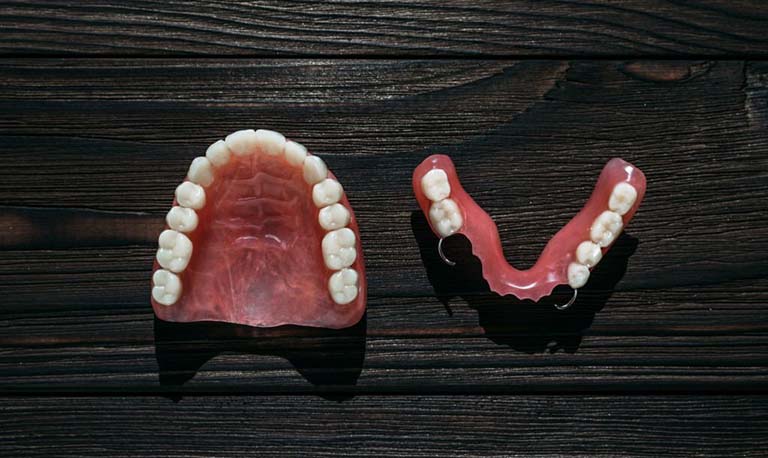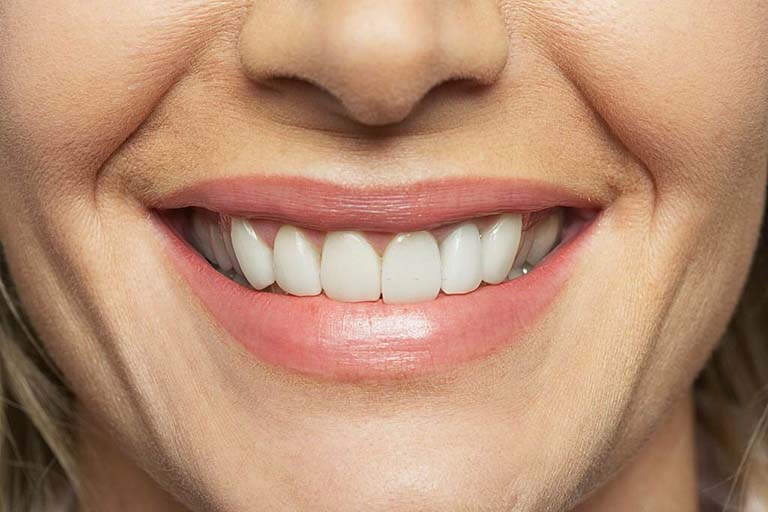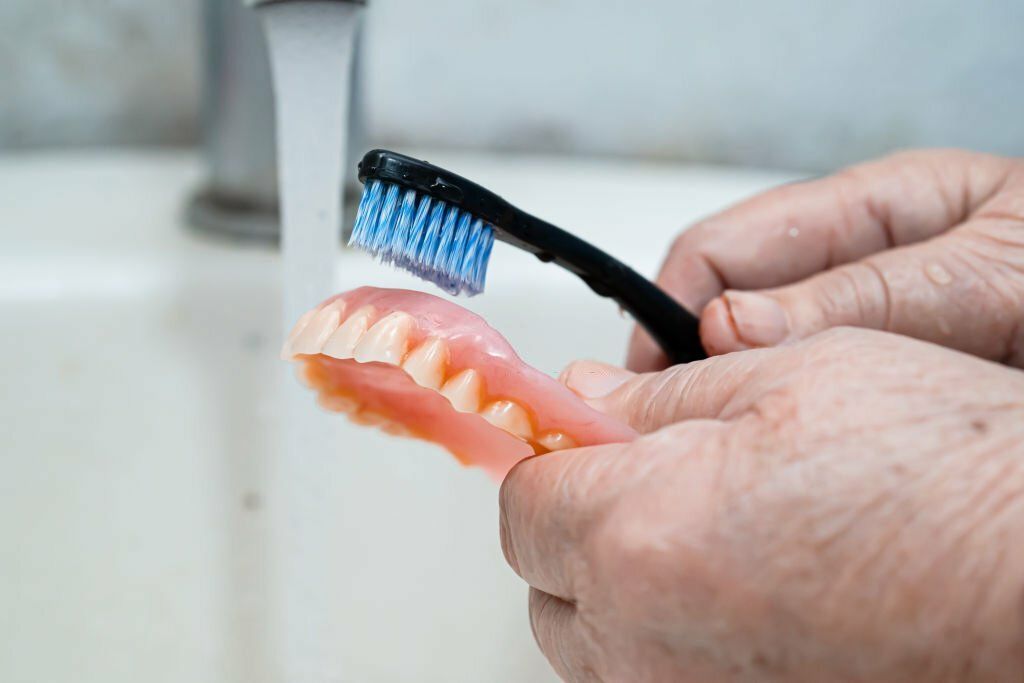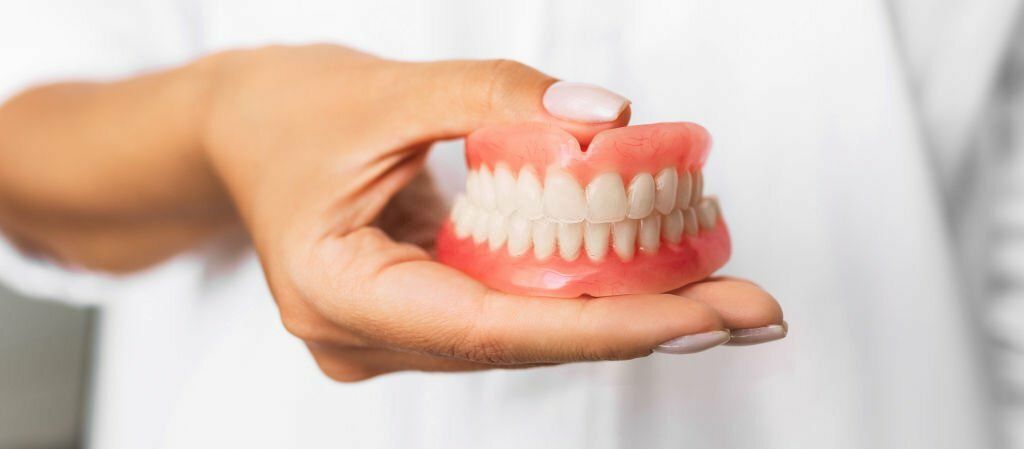> *This article is reviewed, corrected, and approved by: Dr. Joshua Collins M.D. | MRCP। FRCP*
People might lose their teeth due to many reasons. It can make eating certain foods tricky, and they might not feel confident when smiling.
But here's the cool part – dentures can change all of that! It's like giving your face and smile a fantastic makeover.
They serve as an excellent solution for those who have lost their natural teeth, helping restore functionality and aesthetics to their smiles. In our journey today, we'll discover the secrets of before and after dentures – how they work and how they can take someone's smile from "okay" to "amazing”!
Types of Dentures

-
Full Dentures or complete dentures: They cover the upper or lower arch of the mouth when the natural teeth are missing.
-
Single Tooth Denture: Tooth loss can leave a gap in your smile. single tooth denture can fill that gap perfectly and restore your smile.
-
Partial Dentures: These are dental appliances designed to replace one or more missing teeth. It's made up of a gum-colored base that fits snugly over the gums and supports replacement teeth.
-
Immediate Dentures: These are placed right after tooth extraction, allowing the patient to have teeth immediately. As the mouth heals, adjustments may be necessary.
-
Implant-Supported Dentures: When it comes to lower dentures, implant-supported dentures can offer an improvement over traditional options. Implant-supported dentures can often be more comfortable and natural-looking than other types of dentures, helping you feel more confident and at ease in social situations.
Various forms of modern and traditional dentures are available to meet the needs of different individuals:
Benefits of Dentures

Dentures or prosthetic teeth offer several advantages:
- Improved Aesthetics: Dentures restore a natural appearance to your smile.
- Enhanced Speech: They help in maintaining proper pronunciation and clarity of speech.
- Restored Functionality: Dentures or artificial teeth can help improve your oral functioning by allowing you to chew and eat comfortably, which can enhance your overall nutritional intake
- Boosted Confidence: A beautiful smile can enhance self-esteem and self-confidence that can greatly impact your quality of life.
- Preservation of Facial Structure: Dentures support the facial muscles, preventing a sagging appearance.
Who Needs Dentures?
Dentures are a viable option for individuals experiencing tooth loss or gum problems. A comprehensive dental evaluation will be conducted by your dentist to determine if dentures are the most appropriate solution for your specific needs. Factors such as the condition of your existing teeth, the health of your gums, and the overall structure of your mouth will be carefully assessed to ensure the best possible outcome for restoring missing teeth and improving your overall oral health. Your dentist will consider all aspects of your oral health to determine the most effective treatment plan for you.
Before Dentures

- Consultation with a Dentist: To evaluate your oral health and get professional advice, it's essential to book a meeting with a dentist for a consultation.
- X-rays and Impressions: X-rays will help your dentist to see the condition of your teeth, jaw, and bones, while impressions will allow them to create custom dentures that perfectly fit your mouth. These steps are crucial in ensuring that your dentures are comfortable functional, and provide a natural-looking smile.
- Planning for the Denture Placement: The dentist will discuss the denture placement procedure and what to expect.
- Pre-Denture Care Instructions: Your dentist will provide guidelines for preparing your mouth for dentures.
Post-Operative Care Instructions
After the procedure, you'll receive guidance on caring for your new dentures, including:
- Healing Time: It may take a few weeks to adjust to your new dentures and for any post-procedure discomfort to subside.
After Dentures

- Adjusting to Your New Dentures: Adjusting to dentures can be challenging and need patience. To make the transition smoother, it's important to practice speaking and eating with your dentures on. This will help you get used to the feel of the dentures and ensure a comfortable fit over time.
- Eat Soft foods that easier to chew: It's recommended to start with soft foods that are easier to chew and gradually transition to harder foods as you gain more confidence with your dentures.
- Eating with Dentures: Start with soft foods and gradually transition to a regular diet. Avoid very hard or sticky foods.
- Speaking with Dentures: Practice to read, eat and speak aloud to adapt to speaking with your new set of dentures.
- Cleaning and Caring: Taking care of your gums is really important! Make sure to brush and floss your natural teeth regularly. You can also gently massage your gum tissues using a soft-bristled brush or a clean cloth. These simple practices will help you maintain good oral hygiene and avoid any potential dental issues.
- Follow-Up Visits: Regular dental checkups ensure dentures fit well and work properly. The dentist checks and adjusts them, preventing discomfort and problems caused by poor fit.
Denture Placement Procedure
The denture placement procedure typically involves the following steps:
- Tooth Extraction (if necessary): This is typically done if any remaining tooth needs removal.
- Fitting and Adjustment: Adjusting and fixing dentures may take some time. Different types of dentures fitting and adjustment are different.
Essential Tips for Dentures
Here are some necessary tips that might help your before and after denture journey
- Common Problems with Dentures: Learn how to address issues like discomfort, sore spots, or loose dentures.
- Tips for Getting the Most Out of Your Dentures: Advice on maximizing the lifespan and comfort of your dentures.
- The Lifespan of Dentures: Knowing the typical lifespan of dentures helps you make right decisions about when to replace them, ensuring a comfortable and confident smile.
- When to Replace Your Dentures: Signs that it's time to get new dentures and the steps involved.
Cost of the Dentures
Denture costs vary depending on location, type, materials, and complexity. Depending on the type of denture, you have to pay anywhere from $100 to $10,000 per arch. There are also cost effective and affordable denture options out there.
Conclusion
Missing teeth can be a challenging issue to deal with. But dentures provide a practical solution that comes with aesthetics and numerous benefits.
Understanding dentures' types, benefits, and drawbacks will help in proper care and maintenance. It will help ensure a confident and beautiful smile.
F.A.Qs
Q: What type of toothbrush is best for cleaning dentures?
A: If you want to maintain dental care and clean dentures, you can use a soft bristle or denture brush.
Q: What type of dentures appear the most realistic?
A: Realistic dentures and Porcelain dentures look and feel like natural teeth. Porcelain and acrylic are the two options for creating them.
Q: Are fixed dentures and hybrid dentures the same?
A: Fixed implant dentures cannot be removed. Hybrid dentures are fixed and supported by dental implants.
Q: How can you keep your dentures stable and secure?
A: Denture stabilization helps to maintain the stability of after wearing dentures.
Q: Are denture adhesives harmful?
A: When used sparingly or as directed by your dental health provider, denture adhesives are usually safe. But be cautious while using zinc-containing goods, since too much of it can lead to health issues, including copper shortage, anemia, and nerve damage.
Before Dentures
- Consultation with a Dentist: Prioritize your oral health with a professional consultation to receive expert advice.
- X-rays and Impressions: Evaluate teeth, jaw, and bones through X-rays, and create custom dentures with impressions for optimal comfort and functionality.
- Planning for Denture Placement: Discuss the denture placement procedure with your dentist and gain insights into what to expect.
- Pre-Denture Care Instructions: Receive guidelines from your dentist on preparing your mouth for the denture fitting.
- Post-Operative Care Instructions: Guidance on caring for your new dentures, including the healing time and managing post-procedure discomfort.
After Dentures
- Adjusting to Your New Dentures: Patience is key during the adjustment period. Practice speaking and eating to get used to the dentures, ensuring a comfortable fit.
- Eat Soft Foods Initially: Begin with softer foods that are easier to chew and gradually transition to a regular diet as confidence with dentures increases.
- Eating with Dentures: Start with soft foods and progress to a normal diet, avoiding very hard or sticky foods for optimal comfort.
- Speaking with Dentures: Practice speaking and reading aloud to adapt to speaking with your new dentures.
- Cleaning and Caring: Maintain good oral hygiene by regularly brushing and flossing natural teeth. Gently massage gums with a soft brush or clean cloth to prevent dental issues.
- Follow-Up Visits: Regular dental checkups are crucial to ensure dentures fit well and work properly. Dentists check and adjust them, preventing discomfort and addressing any issues related to fit.


